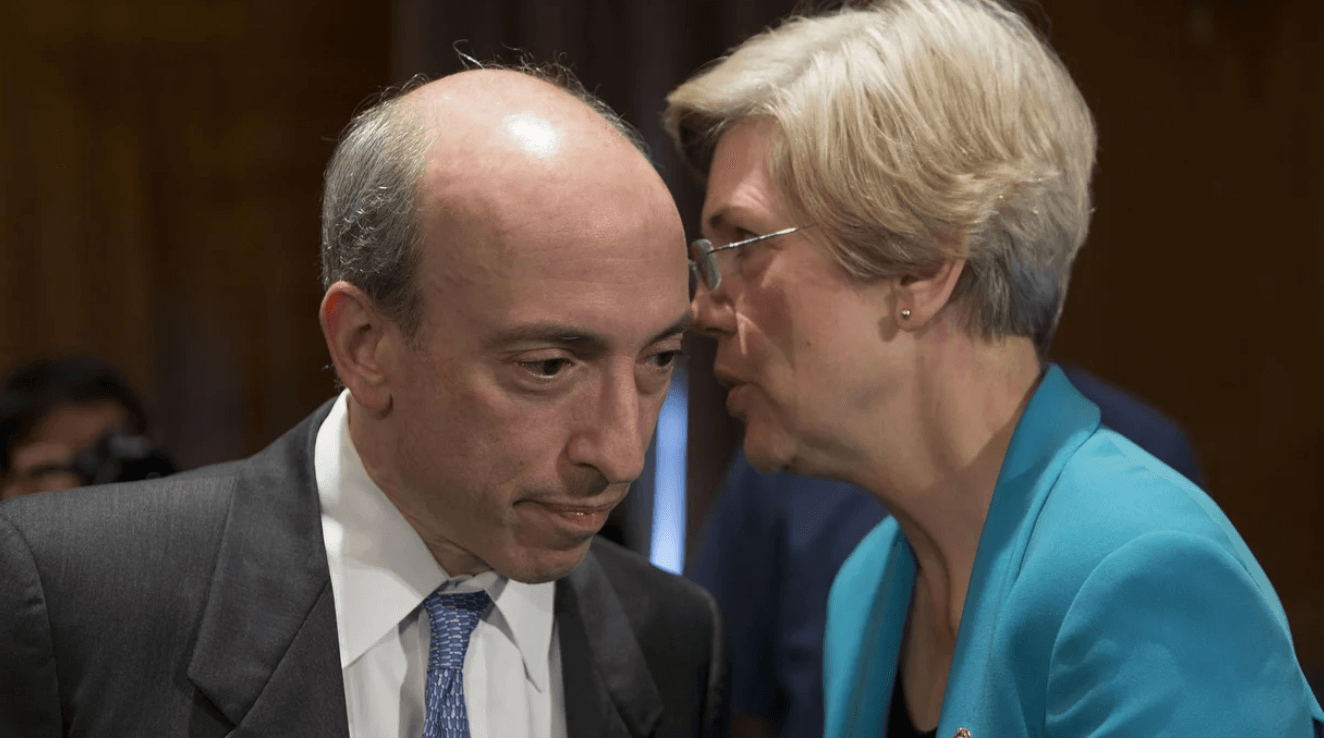Crypto markets have turned upward in recent days following good news. BTC surpassed $30,000, but today, due to new BTCs entering the exchanges, the price dropped below $29,700. At the time of writing, bulls are struggling to limit the impact of the sell-off. However, significant developments are also taking place that may affect the long-term trajectory.
Fed, SEC and Crypto
The Federal Reserve (Fed) and the Securities and Exchange Commission (SEC) play crucial roles in the world of crypto. The SEC is currently behaving aggressively, seeking to broaden its influence by litigating against crypto companies. It desires control over everything, including matters falling within the purview of the Commodities Futures Trading Commission (CFTC) and the Fed. But it won’t always be this way. The CFTC Chairman has already stated that the SEC’s jurisdiction is broader than necessary for crypto.
Now, Fed Chairman Jerome Powell is stepping forward. He appears to contradict the SEC Chairman Gensler’s stance on crypto, showing an upward trend. Powell’s comments underscore the ongoing debate among financial regulators about how best to handle this new asset class. He made these remarks during the House Financial Services Committee’s semi-annual monetary policy meeting, as we announced last minute.

At the meeting, Powell openly recognized stablecoins as a form of money. The central bank leader highlighted their growing prevalence in modern economies. Given the central bank’s role as the “ultimate source of money’s reliability,” Powell asserted that the central bank should play a “strong federal role” in overseeing the potential effects of stablecoins on the monetary system.
This clear support forms a stark contrast to Gensler’s cautious approach. Last year, the SEC Chairman declared that all cryptocurrencies except Bitcoin  $91,081 could be classified as securities, which would require registration and strict regulatory oversight.
$91,081 could be classified as securities, which would require registration and strict regulatory oversight.
Gensler has often called for comprehensive regulation to prevent potential fraud or manipulation and to maintain financial stability.
So Who Wins the Crypto War?
The cracks in the regulatory environment for the future of cryptocurrencies in the United States are clearly visible in the latest disputes. Powell’s remarks shed light on the proposed stablecoin bill, the first of its kind in US legislation, initiated by Republicans. If the bill is passed, it could lead to significant changes in how cryptocurrencies are regulated at the federal and state levels.
Although Powell and Gensler appear to be at odds on this issue, the broader picture reveals a complex landscape where regulatory agencies are striving to understand, adapt to, and utilize the transformative potential of cryptocurrencies. Therefore, a robust regulatory framework capable of adapting to rapidly evolving technologies is essential in the US, and this legal framework will not be as restrictive as the SEC chairman wants. It seems that BlackRock and others are thinking along these same lines, as they have initiated moves on crypto. So, it seems that Gensler might not be the winner of this battle.









